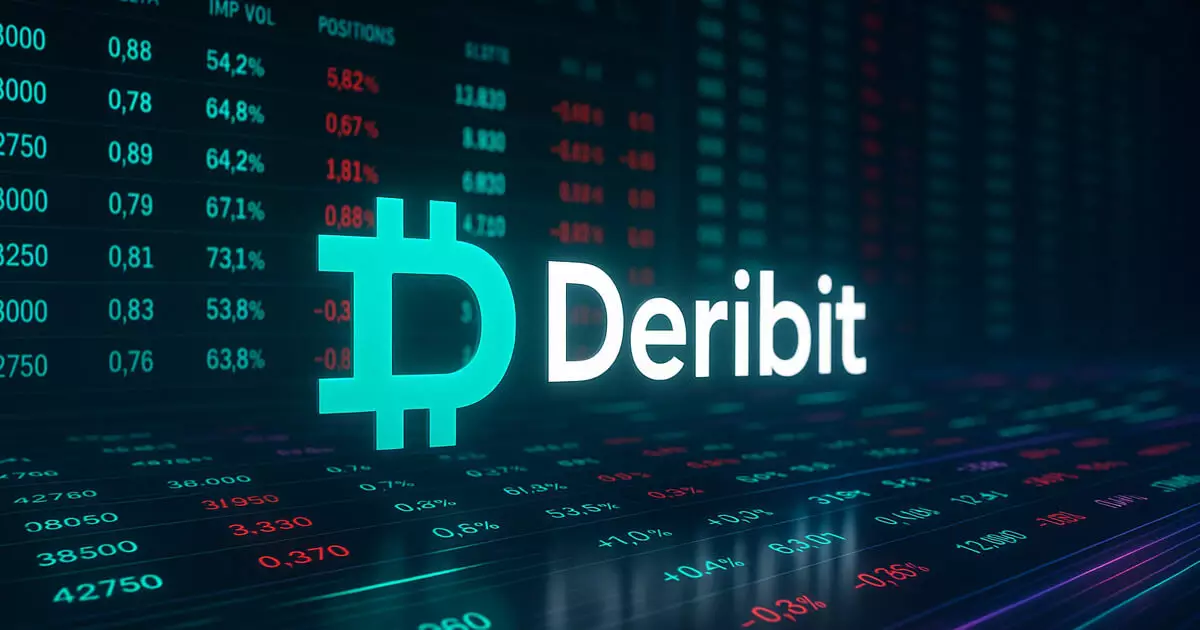In an audacious maneuver, Coinbase has decided to acquire the leading crypto derivatives platform, Deribit, for a staggering $2.9 billion—a transaction poised to be history’s largest within the company’s portfolio. While at face value, this appears to be a remarkable achievement, it simultaneously beckons skepticism about the underlying motivations driving such a hefty investment. In a sector fraught with uncertainty, does Coinbase demonstrate reckless ambition or strategic foresight?
The Allure of Derivatives
Crypto derivatives have become a cornerstone of global trading, capturing the interest of institutional and accredited investors alike. Coinciding with this growing trend, Deribit reported processing approximately $1.2 trillion in trading volume in 2024 alone. At a time when the crypto market experiences rapid swings, being able to hedge against risks has become an enticing proposition. However, this raises profound questions about stability in such a turbulent landscape. Is Coinbase merely chasing the latest buzz in digital finance, or are they engaging in a calculated risk—one that could either catapult them to new heights or crash them into despair?
The Regulatory Minefield
Coinbase’s acquisition hinges on the arduous task of regulatory approval. Deribit holds a license from the Virtual Assets Regulatory Authority (VARA) in Dubai, enabling them to operate legally in a space where clarity is often a mirage. The potential complexity of transferring this license to Coinbase signifies that regulatory entanglements may impede their pursuits. With the political climate in the United States finally hinting at a clearer regulatory framework, it feels like a last-minute bet in a high-stakes poker game—one rife with potential chaos.
Competitive Landscape and Outsider Perception
As Coinbase endeavors to catch up with offshore rivals, the trend of significant acquisitions in the derivatives space continues to gain traction. For instance, Kraken’s $1.5 billion acquisition of NinjaTrader earlier this year mirrors Coinbase’s ambition, yet it also highlights a notion of haste—a race to the finish line without full consideration of potential pitfalls. In the rush to dominate, companies might not be adequately scrutinizing the long-term viability of their acquisitions in the unpredictable crypto ecosystem.
A Fragile Path Forward
The acquisition brims with both promise and peril. On one hand, by absorbing Deribit, Coinbase amplifies its derivatives offerings, streamlining operations under a trusted name. Yet, this union could breed complacency as Coinbase basks in immediate gains while neglecting the essential groundwork required for sustainable growth. In an industry characterized by rapid innovation and changing regulations, complacency can be deadly.
Thus, while Coinbase’s decision to acquire Deribit represents a formidable prospect for expansion, it also embodies a gamble with high-stakes consequences. The transaction invites a crucial examination: will the path illuminated by this acquisition foster stability, or will it plunge Coinbase into the depths of economic uncertainty? Time will tell whether this bold endeavor ultimately fortifies their market position or leads to unforeseen repercussions in the ever-churning waters of cryptocurrency.
















Leave a Reply